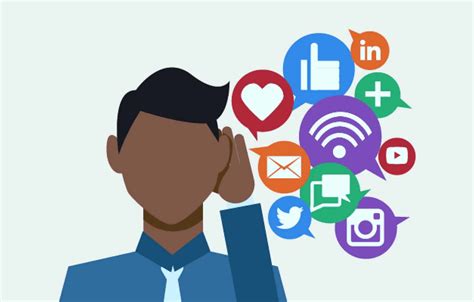Discover the significance of social listening for 2024 marketing strategies, including real-time data, AI integration, and consumer engagement. Evolve your marketing approach today.In the fast-paced world of marketing, staying ahead of the curve is essential for success. As we look towards 2024, it’s clear that the landscape is evolving at a rapid pace, with new technologies and consumer behaviors shaping the way brands interact with their audience. One strategy that has emerged as a game-changer in this dynamic environment is social listening. In this blog post, we’ll dive into the role of social listening in 2024 marketing strategies, exploring its evolution, the importance of real-time data, its integration with AI and automation, and the impact it has on consumer engagement. By understanding the significance of social listening, marketers can harness the power of this tool to not only stay relevant in a competitive market but also build meaningful relationships with their target audience. Join us as we dissect the future of marketing and the pivotal role that social listening plays in it.
Understanding Social Listening
Social listening is the process of monitoring social media platforms, forums, blogs, and other online channels to gain insights into what people are saying about a particular brand, industry, or topic. It involves analyzing the conversations and trends to understand the sentiment and identify opportunities or potential threats. By tracking mentions of keywords or phrases, businesses can obtain valuable information that can be used to improve their marketing strategies, product offerings, and customer service.
One way to utilize social listening is by creating a list of keywords relevant to the business and then monitoring these keywords across various social media platforms. By identifying common themes or issues that are being discussed, businesses can gain valuable insights into customer preferences, pain points, and sentiment towards their brand. This information can then be used to tailor marketing messages, create targeted content, and improve overall customer experience.
In addition to enhancing marketing efforts, social listening also plays a crucial role in crisis management and reputation management. By monitoring and addressing negative feedback or mentions, businesses can mitigate potential reputation damage and demonstrate their commitment to customer satisfaction. Furthermore, social listening can provide opportunities for businesses to engage with their audience, build relationships, and gain loyal customers.
Evolution of Marketing Strategies
Over the years, the marketing industry has witnessed a significant evolution in its strategies. Gone are the days when traditional marketing methods such as print ads and TV commercials were sufficient to attract and engage customers. With the advent of digital technology, marketers have had to adapt and embrace a more innovative approach to reach their target audience.
The rise of social media platforms has played a crucial role in the evolution of marketing strategies. Brands now have the opportunity to directly engage with consumers through platforms like Facebook, Instagram, and Twitter. This shift has led to a greater emphasis on building authentic relationships with customers, rather than simply broadcasting marketing messages.
Furthermore, the availability of real-time data has revolutionized the way marketers analyze consumer behavior and make strategic decisions. By leveraging data analytics tools, businesses can gain valuable insights into customer preferences, purchasing patterns, and overall market trends. This has allowed for more personalized marketing efforts, as brands can tailor their messages and offerings to specific audience segments.
| Traditional Marketing | Modern Marketing |
|---|---|
| One-way communication | Two-way communication |
| Long lead times | Real-time campaign optimization |
| Mass marketing | Targeted advertising |
In conclusion, the evolution of marketing strategies has been driven by advancements in technology and changes in consumer behavior. As we look towards the future, it is clear that innovation will continue to shape the way businesses connect with their audience. Marketers must be adaptable and open to embracing new tools and techniques in order to stay ahead in an ever-changing landscape.
Importance of Real-time Data
Real-time data has become increasingly important in the ever-evolving landscape of digital marketing. With the constant influx of consumer behavior and market trends, businesses need to be able to access and analyze real-time data to make informed decisions. This type of data provides instantaneous insights into customer preferences, market changes, and campaign performance, enabling marketers to adapt their strategies quickly and effectively.
By leveraging real-time data, companies can stay ahead of the competition and capitalize on emerging opportunities. For example, if a particular product is gaining traction on social media, marketers can swiftly adjust their advertising efforts to maximize its potential reach. Furthermore, real-time data allows businesses to address customer concerns and issues as they arise, leading to improved customer satisfaction and brand loyalty.
Additionally, real-time data enables companies to optimize their marketing campaigns in the moment, rather than relying on historical data that may no longer be relevant. This agility and responsiveness are crucial in today’s fast-paced digital environment, where consumer preferences and market dynamics can change rapidly.
In conclusion, the importance of real-time data cannot be overstated in modern marketing strategies. By leveraging this valuable resource, businesses can gain a competitive edge, enhance customer engagement, and drive greater ROI for their marketing efforts.
Integration with AI and Automation
Integration with AI and Automation has become an essential aspect of modern marketing strategies. As businesses strive to stay competitive in the digital landscape, they are increasingly turning to AI and automation tools to streamline processes, personalize customer experiences, and improve overall efficiency. By integrating AI and automation into their marketing efforts, companies can gain valuable insights, identify patterns, and make data-driven decisions at a scale and speed that would be impossible with manual processes.
One of the key benefits of integrating AI and automation into marketing strategies is the ability to analyze large volumes of real-time data to better understand consumer behavior and preferences. With AI-powered tools, marketers can track and monitor customer interactions on various digital platforms, identify trends, and predict future actions. This enables businesses to deliver highly targeted and personalized content to their audiences, resulting in improved engagement and conversion rates.
In addition, AI and automation can facilitate consumer engagement by enabling more efficient and effective communication. Chatbots and virtual assistants, powered by AI technologies, can provide instant support and information to customers, enhancing their overall experience with a brand. Furthermore, these tools can automate routine tasks such as email marketing, social media management, and website personalization, freeing up valuable time for marketers to focus on strategy and creativity.
| Benefits of Integration with AI and Automation |
|---|
| Improved efficiency and productivity |
| Enhanced customer engagement |
| Personalized and targeted marketing |
| Real-time data analysis and insights |
Impact on Consumer Engagement
The impact of social listening on consumer engagement has been transformative in the evolution of marketing strategies. By understanding the needs, preferences, and sentiments of consumers through social listening, companies have been able to tailor their marketing efforts to better resonate with their target audience. Social listening allows businesses to gain real-time data on consumer behavior, enabling them to make informed decisions and quickly adapt their strategies to meet the changing demands of the market.
One of the key ways in which social listening has impacted consumer engagement is by providing companies with valuable insights into consumer perceptions of their brand. By monitoring social media conversations, companies can identify areas of improvement, address customer concerns, and enhance their overall brand image. This not only leads to increased customer satisfaction but also fosters a stronger connection between the brand and its audience, resulting in higher levels of engagement and loyalty.
Furthermore, the integration of AI and automation in social listening tools has revolutionized the way companies engage with consumers. These technologies enable businesses to analyze large volumes of social data in a more efficient and accurate manner, allowing them to identify trends, predict consumer behavior, and personalize their marketing efforts at scale. By leveraging AI and automation, companies can deliver more relevant and timely content to consumers, ultimately driving higher levels of engagement and conversion.
In summary, the impact of social listening on consumer engagement cannot be overstated. As companies continue to recognize the importance of real-time data and insights into consumer behavior, the role of social listening in shaping marketing strategies and enhancing consumer engagement will only continue to grow in the years to come.
Frequently Asked Questions
What is social listening?
Social listening is the process of monitoring digital conversations to understand what customers are saying about a brand or industry online.
How does social listening impact marketing strategies?
Social listening provides valuable insights into customer preferences, sentiment, and trends, which can inform marketing strategies and help create more targeted and personalized campaigns.
What are the benefits of incorporating social listening into marketing strategies?
Benefits of social listening include improved customer understanding, crisis management, competitive analysis, and the ability to identify and capitalize on emerging trends.
How can businesses use social listening to improve their marketing efforts?
Businesses can use social listening to identify pain points, gain competitive intelligence, improve customer experience, and tailor products and services to better meet customer needs.
What are some tools for social listening?
Some popular social listening tools include Hootsuite, Mention, Brandwatch, Sprout Social, and Talkwalker, which provide features for monitoring, analyzing, and engaging with online conversations.
How can social listening help with customer engagement?
By listening to customer feedback and sentiment, businesses can respond to customer needs, concerns, and inquiries, strengthening relationships and improving overall customer satisfaction.
What are some considerations for implementing social listening in marketing strategies?
Considerations include choosing the right tools, creating a structured approach to analyzing data, setting clear objectives, and ensuring that insights are translated into actionable marketing tactics.



